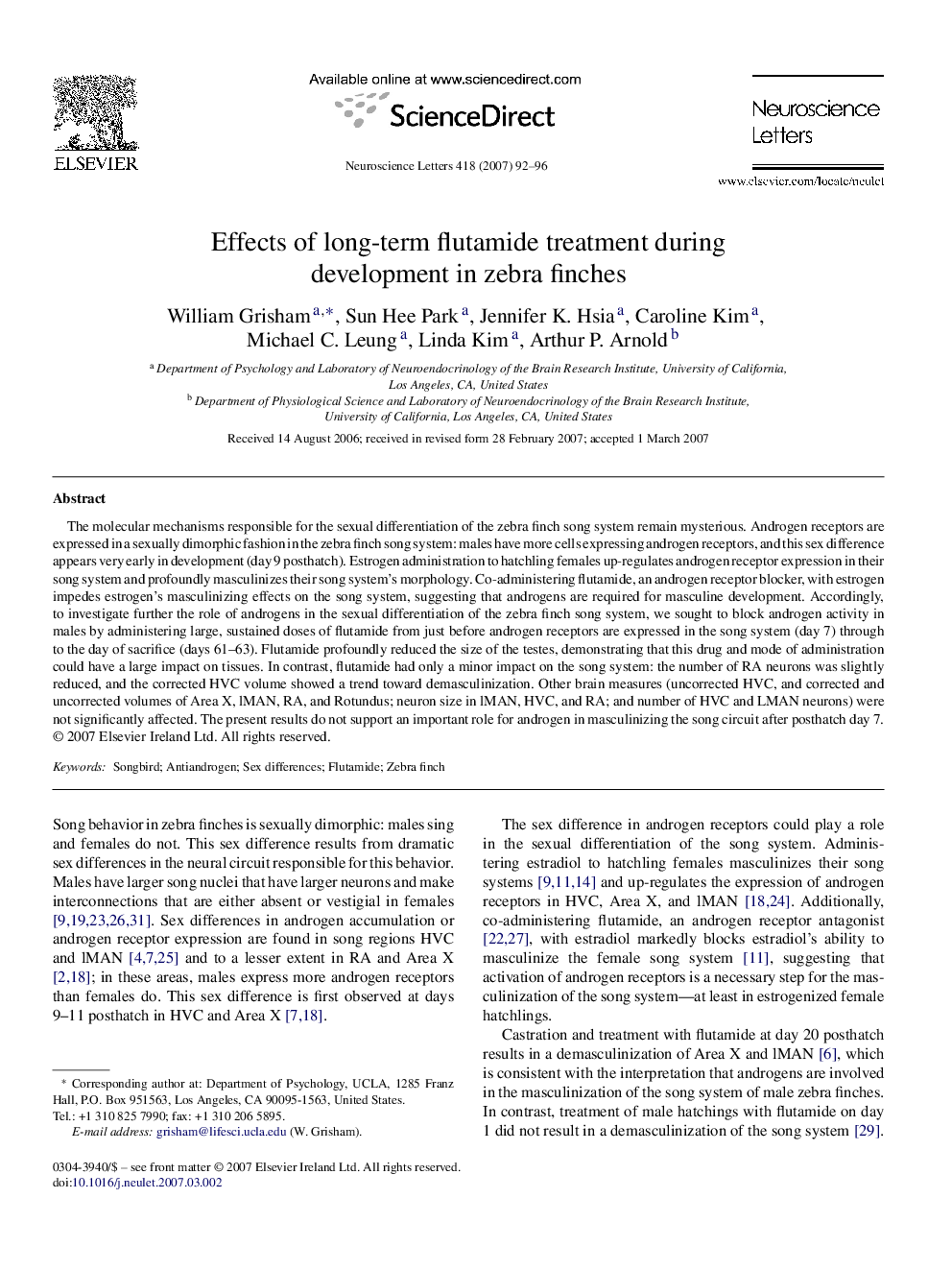| Article ID | Journal | Published Year | Pages | File Type |
|---|---|---|---|---|
| 4349760 | Neuroscience Letters | 2007 | 5 Pages |
The molecular mechanisms responsible for the sexual differentiation of the zebra finch song system remain mysterious. Androgen receptors are expressed in a sexually dimorphic fashion in the zebra finch song system: males have more cells expressing androgen receptors, and this sex difference appears very early in development (day 9 posthatch). Estrogen administration to hatchling females up-regulates androgen receptor expression in their song system and profoundly masculinizes their song system's morphology. Co-administering flutamide, an androgen receptor blocker, with estrogen impedes estrogen's masculinizing effects on the song system, suggesting that androgens are required for masculine development. Accordingly, to investigate further the role of androgens in the sexual differentiation of the zebra finch song system, we sought to block androgen activity in males by administering large, sustained doses of flutamide from just before androgen receptors are expressed in the song system (day 7) through to the day of sacrifice (days 61–63). Flutamide profoundly reduced the size of the testes, demonstrating that this drug and mode of administration could have a large impact on tissues. In contrast, flutamide had only a minor impact on the song system: the number of RA neurons was slightly reduced, and the corrected HVC volume showed a trend toward demasculinization. Other brain measures (uncorrected HVC, and corrected and uncorrected volumes of Area X, lMAN, RA, and Rotundus; neuron size in lMAN, HVC, and RA; and number of HVC and LMAN neurons) were not significantly affected. The present results do not support an important role for androgen in masculinizing the song circuit after posthatch day 7.
